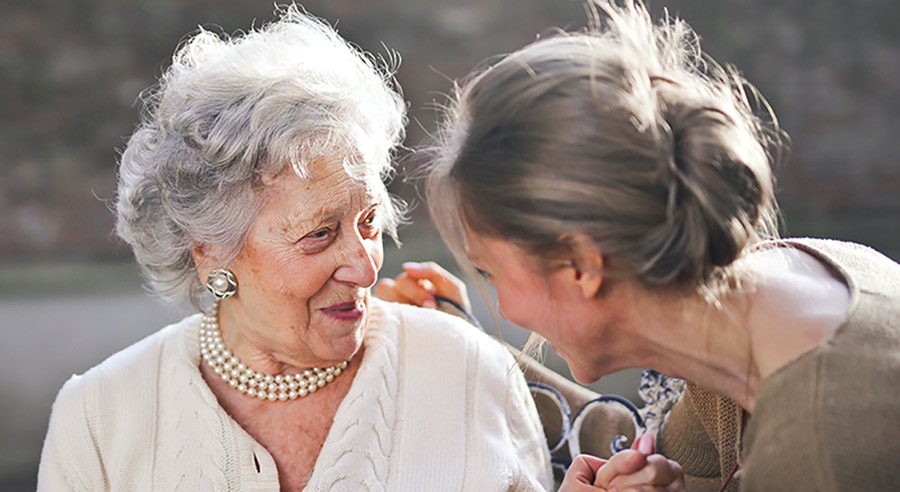In Home Caregivers and NDIS Plan Manager Responsibilities: Navigating Home Care Providers in Australia
In Home Caregivers and NDIS Plan Manager Responsibilities: Navigating Home Care Providers in Australia
Blog Article
Just How In Home Care Givers Address the Unique Difficulties and Emotional Needs of Families Looking For Support for Their Loved Ones
In-home caregivers play a crucial duty in browsing the complexities encountered by families looking for support for their loved ones. By comprehending special family dynamics and offering tailored emotional assistance, these experts not just address instant care needs but also foster an environment of trust and open interaction. This method is necessary in taking care of the psychological strain usually experienced by family members, as it recognizes their concerns and verifies their experiences. The subtleties of this partnership prolong beyond simple caregiving; the ramifications for family health and caregiving effectiveness warrant additionally exploration.
Understanding Family Characteristics
Comprehending family characteristics is vital for offering effective at home care, as each family members runs within an unique set of communications and connections. These dynamics include different aspects, consisting of communication styles, functions, and class structure that influence exactly how care is delivered and gotten. The caretaker has to identify these factors to ensure that treatment plans straighten with the family members's worths and assumptions.
Various family members might show distinctive patterns of communication, such as hierarchical frameworks or joint techniques. In some families, a key decision-maker may hold significant impact, while in others, decisions may be more democratic. Understanding these patterns aids caregivers tailor their techniques to fit the household's certain needs.
Furthermore, social histories play an important function fit family members dynamics. Caregivers should be culturally competent, acknowledging and appreciating varied practices and beliefs that may impact care choices.
Ultimately, a detailed understanding of family dynamics assists in improved communication, cultivates trust, and boosts the caretaker's ability to support the family effectively. By identifying the intricate web of partnerships and obligations, caretakers can produce an encouraging setting that promotes wellness for both the individual getting care and the family members in its entirety.
Providing Emotional Support
Supplying emotional support is a vital part of at home care that dramatically boosts the health of both the specific getting treatment and their relative. In the context of caregiving, emotional assistance includes active listening, empathy, and validation of feelings. Caretakers are educated to acknowledge the psychological struggles that family members deal with, such as seclusion, guilt, and anxiety, and to provide a compassionate presence that alleviates these problems.
By promoting open communication, caretakers develop a risk-free area for household members to express their problems and anxieties. This discussion not only motivates psychological launch however additionally strengthens depend on between the caretaker and the family members. Furthermore, caretakers can provide practical approaches to aid families handle anxiety and advertise durability.

Ultimately, the psychological support offered by at home caretakers enhances the top quality of life for both clients and their households, promoting a more compassionate and understanding caregiving setting. This alternative approach makes sure that psychological requirements are attended to along with physical health and wellness considerations.
Managing Daily Treatment Tasks
Managing day-to-day treatment jobs is an essential facet of at home care that makes certain individuals get the assistance they need to preserve their wellness and freedom. Caregivers play an essential role in helping with tasks of daily living (ADLs), which consist of showering, clothing, grooming, and meal preparation. By taking on these responsibilities, caretakers aid relieve the physical and emotional concerns that families might deal with while looking after their loved ones.
Along with personal treatment, caregivers are also entrusted with medicine administration, making sure that customers adhere to recommended does and schedules. This oversight is vital for preserving health and wellness and stopping negative effects from missed or incorrect medicines. Caregivers frequently help with movement, providing assistance for clients moving around their homes, therefore decreasing the risk of falls and boosting overall safety and security.

Cultivating Open Communication
Effective management of everyday treatment jobs typically pivots on the quality of communication between caregivers, clients, and their family members. Open communication cultivates an environment where worries, choices, and comments can be freely exchanged, ensuring that treatment is customized to satisfy individual needs. Caretakers ought to prioritize routine check-ins with both customers and their families, helping with conversations that attend to any issues or modifications in treatment requirements.
Utilizing different communication methods-- such as face-to-face conferences, telephone call, and created updates-- can enhance understanding and offer families with assurance. It's vital for caretakers to actively listen, demonstrating compassion and regard for the emotional landscape of the family. Motivating inquiries from relative can additionally assist clear up treatment plans and enhance the caretaker's commitment to transparency.
In addition, maintaining open lines of communication enables caregivers to recognize and respond promptly to any type of changes in a customer's health and wellness condition or psychological well-being. This proactive technique not just enhances the caregiver-client vibrant yet additionally encourages households to get involved important site proactively in the care process. Ultimately, cultivating open interaction is vital for boosting the high quality of in-home view website treatment and advertising an encouraging environment for all entailed.
Structure Count On and Relationships
Count on is the keystone of successful at home treatment, as it establishes a structure for purposeful connections between caretakers, customers, and their households. Structure this count on needs regular, clear communication and a real dedication to the well-being of those included. Caregivers must demonstrate integrity with preparation, adherence to care plans, and responsiveness to the needs and choices of clients.
To cultivate depend on, caretakers must take part in active listening, making certain that families really feel listened to and recognized. This entails not just dealing with immediate worries yet additionally anticipating future demands, thereby encouraging households and improving their sense of control. Developing rapport with shared experiences and considerate communications can better solidify these connections.
Moreover, caretakers should be educated to identify and attend to the emotional intricacies faced by households. By showing empathy and concern, they can minimize worries and unpredictabilities, enhancing trust fund. Regular updates and check-ins with household participants can additionally enhance transparency, allowing them to feel involved and informed concerning their liked one's care.
Eventually, constructing count on and nurturing relationships in at home care is a collaborative process that substantially influences the browse around this web-site high quality of care given, cultivating an encouraging setting that benefits everybody included.
Final Thought
At home caretakers play an essential duty in attending to the distinct difficulties and psychological needs of family members. By understanding household characteristics, offering psychological assistance, and cultivating open communication, caregivers enhance the overall caregiving experience. Their capacity to take care of daily care jobs while constructing depend on and solid relationships cultivates a helpful atmosphere for clients and their family members. Ultimately, the caring involvement of caregivers substantially adds to improved well-being and resilience for those navigating the complexities of caregiving.
Understanding family members dynamics is crucial for giving reliable in-home care, as each family members operates within an one-of-a-kind set of relationships and communications.Supplying emotional support is a vital component of at home treatment that significantly improves the health of both the private obtaining care and their household participants. By taking on these obligations, caregivers aid minimize the emotional and physical burdens that households may face while caring for their liked ones.
Reliable monitoring of daily care jobs frequently hinges on the quality of communication in between caregivers, customers, and their households - ndis support coordinator.Depend on is the foundation of effective at home care, as it establishes a foundation for meaningful partnerships in between caretakers, clients, and their families
Report this page